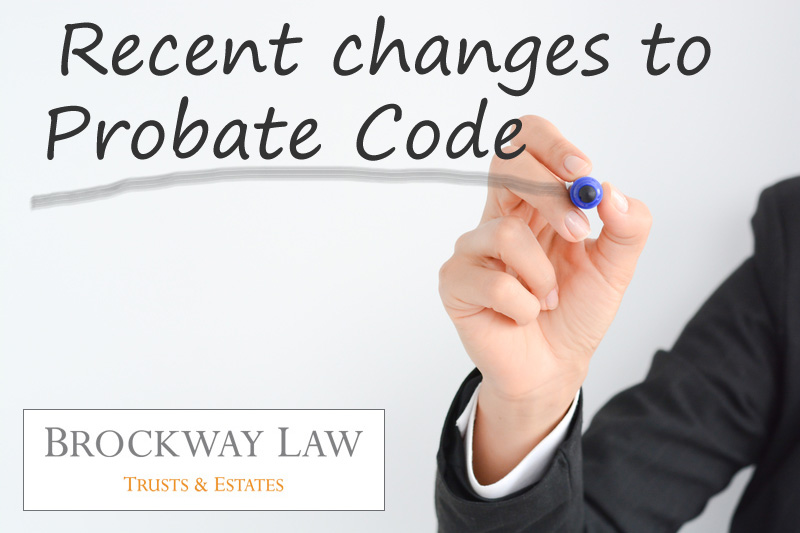Giuliana V. Brockway
As Principal of Brockway Law in Santa Rosa, California, my practice includes estate planning, wills and trusts, trust and estate litigation, trust and estate administration and probate matters.

Each year some changes or clarifications to the California Probate Code come by way of the Executive Committee of the Trusts & Estates Section of the State Bar of California. Of those coming into effect in 2018, one particular change will be of interest to clients seeking to change, modify or terminate an irrevocable trust. A recent article by Heather Matsumoto Hoekstra, Esq. and Camille Milder, Esq. New Probate Laws: You Will Want to Read This… Trust Me, provides a quick summary:
Changes to Probate Code sections 15403 and 15404 make it easier to modify or terminate a trust. Revised section 15403 creates a modest expansion in the ability of consenting beneficiaries to modify or terminate an irrevocable trust with court approval. Under the prior rule, even if all beneficiaries consented, the court was precluded from terminating a trust if the trust was subject to a valid spendthrift provision limiting what a beneficiary could receive and when. Now, such a trust may be terminated with the consent of all beneficiaries where the court, in its discretion, determines that there is good cause to do so. The section also adds subsection (c), which authorizes the court to limit the class of beneficiaries whose consent is necessary under the rule, thereby harmonizing the section with mirrored language in section 15404. Revised section 15404, in turn, creates a private process for modifying or terminating a trust where the settlor and all beneficiaries consent by eliminating the requirement of court approval for such changes. Lastly, both revised sections adopt clarifying language, such as eliminating the word “compel” to describe a request to the court.
In many cases clients ask me about modifying a trust when “everyone agrees”. Required court approval of such a change has been protection for the beneficiary or settlor who perhaps does not have the ability to adequately voice their non-agreement on their own. With the change to section 15404, it will be very important for a trust attorney to adequately assess and evaluate if everyone truly agrees.